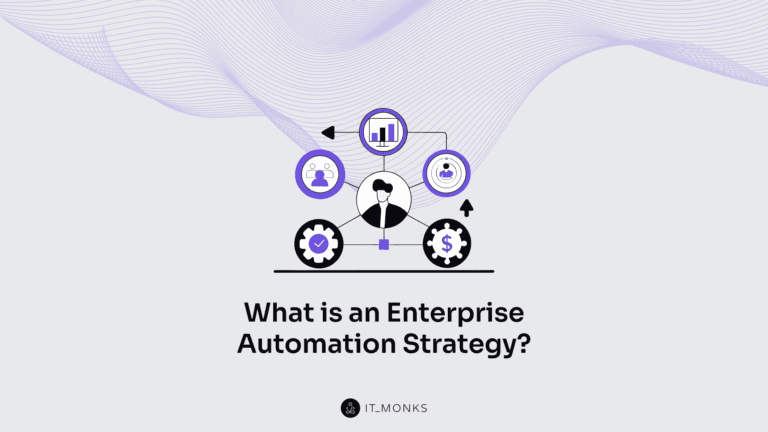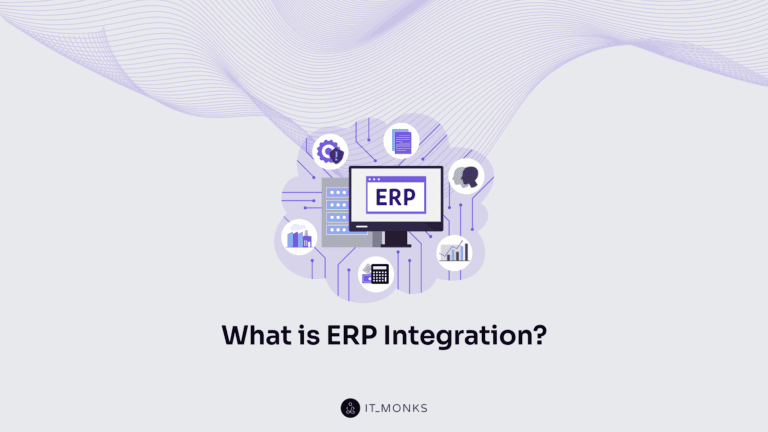What is Enterprise Marketing?
Table of Contents
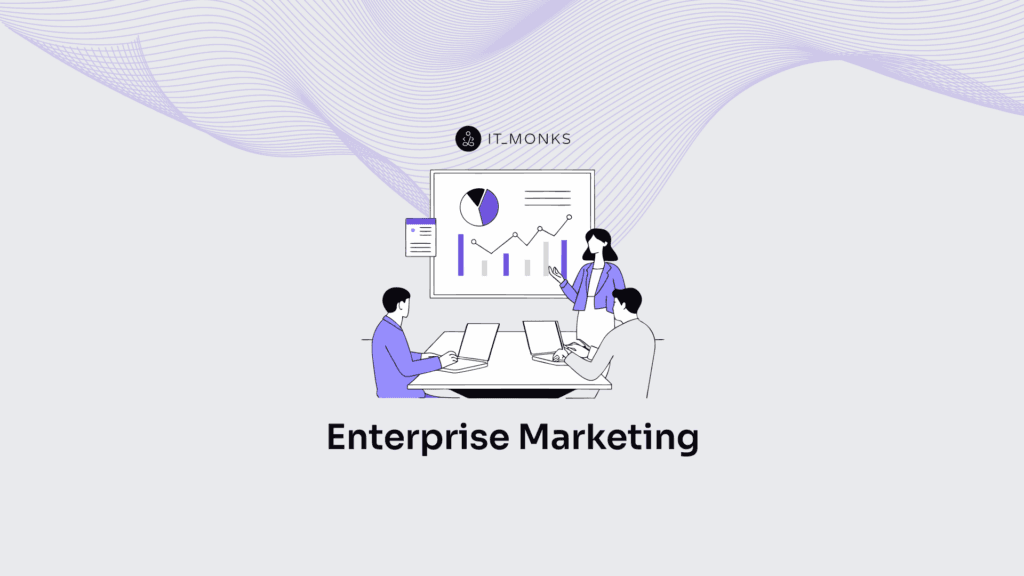
Enterprise marketing is a set of strategies large companies use to expand their reach and build their brand. It involves complex, multi-channel online and offline campaigns managed by teams across the organization.
Enterprise marketing targets acquiring new customers and retaining existing ones, accommodating longer sales cycles and intricate decision-making processes.
To maintain a cohesive brand identity, businesses rely on omnichannel enterprise marketing. This approach ensures a seamless and unified brand presence across all enterprise marketing types, including content, PPC campaigns, SEO, social media, and live events.
Enterprises use platforms and software such as Salesforce Marketing Cloud, Adobe Experience Cloud, HubSpot, and others to effectively manage marketing campaigns across these diverse channels and boost customer engagement.
An enterprise website is the cornerstone of brand representation, customer engagement, and lead generation. It also plays a pivotal role in building credibility and establishing a strong online presence.
When paired with a comprehensive enterprise marketing strategy, the website becomes central in aligning efforts across channels, maintaining brand consistency, reaching the right audience, and achieving business objectives.
What are the Benefits of Enterprise Marketing?
The benefits of enterprise marketing include increased brand awareness, brand growth, and brand identity.
- A large company can reach a wider audience and build a strong brand image through strategic marketing across multiple channels, making its name and offerings more recognizable.
- Enterprises can achieve broader brand awareness, consistent messaging, deeper customer engagement, and a stronger market position.
- A business strengthens its brand identity through consistent messaging across all channels, building trust, recognition, and a strong reputation, particularly with large, diverse audiences.
Types of Enterprise Marketing
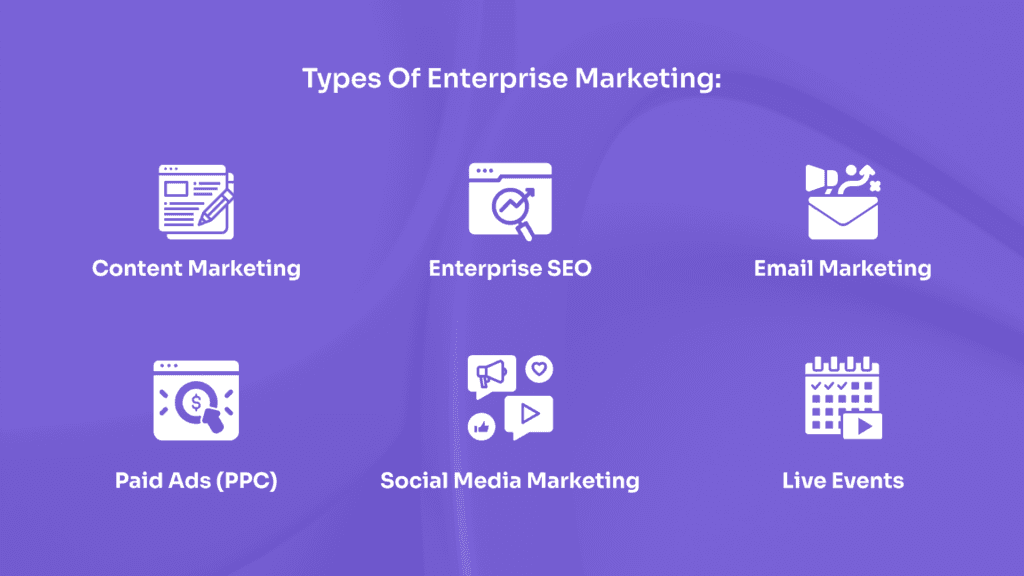
The main types of enterprise marketing include content marketing, paid ads (PPC), enterprise SEO, social media marketing, email marketing, and live events.
A multichannel strategy that integrates these methods ensures consistent messaging across all platforms, maximizing reach and effectiveness.
By combining content, paid ads, SEO, social media, email campaigns, and live events, businesses can target different audience segments, strengthen their brand presence, and achieve their corporate goals more efficiently.
Content Marketing
Content marketing is a type of enterprise marketing where large organizations create and distribute valuable, relevant content across multiple channels to attract, engage, and retain a defined target audience.
The goal is to build brand awareness, establish thought leadership, and drive business growth by providing informative and engaging content rather than focusing on direct product promotion.
This approach benefits enterprises by enhancing their brand reputation, driving organic search traffic, and fostering deeper customer engagement. It also offers cost-effectiveness compared to traditional advertising methods, making it an essential strategy for large organizations.
Paid Ads (PPC)
Paid Ads (PPC) is a type of enterprise marketing where businesses pay for their ads to appear in search results and on websites. The main goals of PPC are to enhance brand awareness, drive traffic to a website, generate leads, and increase sales.
PPC advertising offers several key benefits, including cost-effectiveness (as businesses only pay when users click on ads), targeted audience reach, and measurable results. It can complement other marketing strategies, boost conversions, and provide a competitive edge.
Enterprise SEO
Enterprise SEO is a type of enterprise marketing focused on optimizing the online presence of large organizations with complex websites and extensive digital footprints. Unlike traditional SEO, it takes a holistic approach to improve search engine rankings across all online assets, including websites and blogs.
This strategy involves managing competitive keywords and using advanced analytics to monitor performance across multiple platforms.
The primary goal of enterprise SEO is to improve organic search engine rankings, drive substantial traffic to the website, boost brand visibility, and support broader business goals such as increased revenue, market share, and customer retention.
The key benefit of enterprise SEO is its ability to significantly increase organic traffic and brand visibility by strategically optimizing content and technical elements of a website, ultimately fostering business growth and attracting a larger audience across multiple markets.
Social Media Marketing
Social Media Marketing is a type of enterprise marketing that leverages platforms like LinkedIn, Facebook, Instagram, and Twitter to promote a company’s brand, products, and services.
The goal of social media marketing in enterprise marketing is to increase brand awareness, drive website traffic, generate leads, boost customer engagement, and foster brand loyalty.
A key benefit of social media marketing is its ability to reach a large, diverse audience while fostering customer engagement and building brand awareness.
It provides valuable insights into customer preferences through direct interactions, enabling businesses to tailor their marketing strategies for better customer acquisition, loyalty, and ultimately, driving sales and enhancing brand reputation.
Email Marketing
Email marketing is a type of enterprise marketing that uses email as a digital channel to promote products and services to a large audience.
The primary goal of email marketing in enterprise marketing is to nurture leads, drive website traffic, generate sales, and foster customer retention. This is achieved by delivering targeted and personalized email campaigns to a large audience, aligned with business objectives.
Email marketing offers significant benefits for enterprises, including a high return on investment (ROI), scalability to reach diverse customer segments, and the ability to deliver personalized content. It provides measurable results, such as open and click-through rates, which help businesses refine their strategies.
Additionally, it fosters customer engagement, nurtures leads through the sales funnel, and consistently promotes brand awareness.
Live Events
Live events are a type of enterprise marketing strategy where companies host in-person gatherings, such as conferences, trade shows, product launches, or workshops, to engage with potential customers directly, build brand awareness, and promote their products or services.
The primary goal of live events in enterprise marketing is to build brand awareness, generate leads, strengthen customer relationships, and establish thought leadership.
This is accomplished through in-person interactions at events like conferences or workshops, where companies can engage directly with their audience, foster connections, and enhance their reputation.
Live events offer a unique platform to showcase products and services, create memorable brand experiences, and build trust with attendees. Additionally, live events provide valuable opportunities for relationship building, gathering feedback, gaining media exposure, and establishing competitive advantages through distinctive, interactive experiences.
Enterprise Marketing Platforms and Software
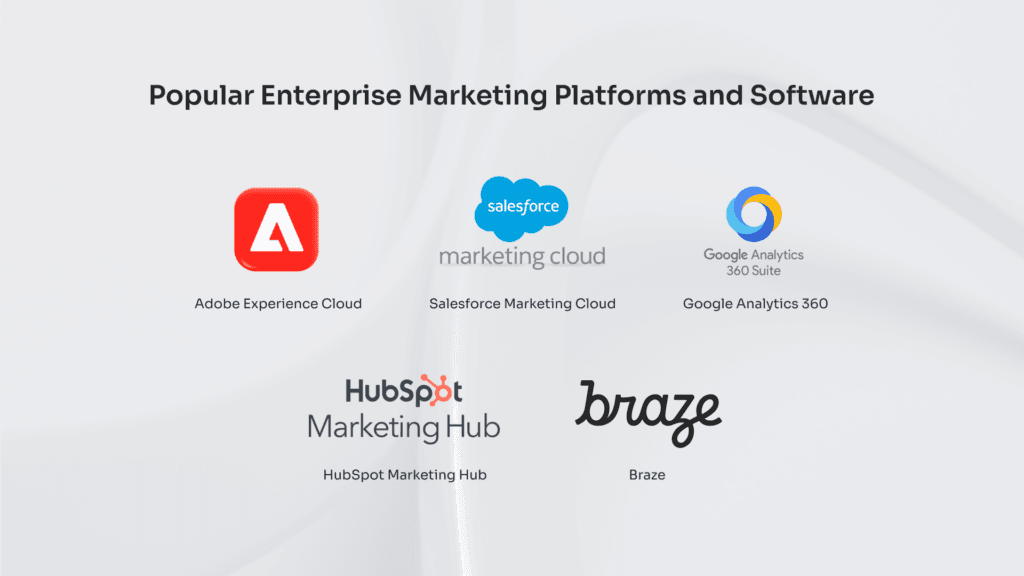
Enterprise marketing platforms and software refer to a suite of advanced software applications large organizations use to manage and optimize their marketing campaigns across various channels.
These platforms and software help automate tasks, personalize customer experiences, and analyze data on a large scale, enabling organizations to achieve their marketing goals effectively.
They are designed specifically to meet the complex needs of large businesses, offering solutions for managing email, social media, website analytics, and customer relationship management (CRM).
Using enterprise platforms and software helps large organizations streamline complex marketing processes, manage vast amounts of data, automate repetitive tasks, and deliver personalized campaigns across multiple channels.
The most common and useful enterprise marketing platforms and software are:
- Salesforce Marketing Cloud integrates CRM features such as customer segmentation and tracking, enabling businesses to create detailed customer profiles and execute targeted campaigns with advanced automation and personalization tools to manage customer journeys.
- Adobe Experience Cloud includes tools for website management, analytics, advertising, and marketing automation, helping businesses deliver personalized experiences, track customer behavior, and optimize marketing strategies across multiple channels.
- Google Analytics 360 provides insights into website traffic and user behavior by analyzing large datasets, measuring campaign performance, and tracking key metrics like conversion rates, bounce rates, and session duration to improve marketing outcomes.
- HubSpot Marketing Hub is a user-friendly platform for managing inbound marketing activities like lead generation, email marketing, and social media.
- Braze enables real-time customer engagement and personalized messaging across email, push notifications, in-app messaging, and SMS, driving conversions with automated, data-driven communication strategies.
- ActiveCampaign is a comprehensive marketing software that offers email, web, social, and text tools, integrating with existing apps to maintain workflow continuity.
- Mailchimp is a marketing automation platform for email marketing, landing pages, social media ads, and CRM, featuring email templates, A/B testing, and analytics.
- Klaviyo is an email marketing platform with advanced automation features and custom reports, designed to increase website interactions and drive traffic to online stores.
CRM for Enterprise Marketing
CRM for enterprise marketing centralizes customer data across various touchpoints, such as email, social media, website interactions, mobile apps, and in-store visits, offering a comprehensive view of each customer.
It helps businesses centralize customer data, enabling audience segmentation, personalized campaigns, task automation, and improvements in targeting, sales processes, and customer retention.
They provide deep insights into customer behavior, allowing for targeted marketing, better lead nurturing, and improved campaign management. By using enterprise CRM and marketing automation, large-scale businesses can streamline repetitive tasks, enhance lead management, and deliver personalized experiences across multiple channels.
What is Enterprise Marketing Automation?
Enterprise marketing automation (EMA) uses software and technology to streamline, manage, and optimize large-scale marketing efforts within complex organizations. It enables businesses to deliver personalized campaigns across multiple channels, improve customer engagement, and drive growth through data-driven strategies.
Key functionalities of EMA include:
- Combining data from various sources to create detailed customer profiles;
- Delivering consistent messages across email, SMS, social media, and websites;
- Automating guiding leads through the sales funnel with targeted content;
- Measuring campaign performance, ROI, and providing actionable insights.
- Tailoring content to individuals based on demographics and behavior.
- Coordinating multi-step campaigns across multiple channels effectively.
What Is the Role of Enterprise Websites in Marketing?
The role of an enterprise website in marketing is to act as the primary platform for showcasing products, services, and brand identity while enabling lead generation and customer engagement.
It centralizes digital marketing efforts, serving as a unified hub for communicating with customers and driving business growth.
A well-developed enterprise website supports all aspects of enterprise marketing by seamlessly integrating these functions. It ensures efficient operations, scales with business growth, and drives the success of digital marketing initiatives.
For tailored solutions, large-scale businesses can invest in enterprise website development to create a platform optimized for user experience and business outcomes.
A well-developed website helps prevent issues like inconsistent messaging, fragmented data, and poor cross-team collaboration. It enables streamlined operations, unified customer insights, and better coordination, addressing key challenges in enterprise marketing.
What are the Challenges of Enterprise Marketing?
The challenges in enterprise marketing include managing large-scale operations, ensuring data accuracy, and coordinating cross-functional efforts. These hurdles stem from the complexity of organizational structures and the demand for consistent messaging across multiple channels.
Managing large-scale operations involves overseeing multiple teams, campaigns, and channels, which can lead to inefficiencies and misalignment. The scale of operations often results in difficulties in maintaining consistent messaging and seamless coordination across various marketing activities.
Ensuring data accuracy is another critical challenge. With customer information scattered across multiple sources and platforms, creating a unified and reliable view of customer data becomes a complex task. More accurate or fragmented data can be needed to ensure effective targeting and personalization efforts.
Coordinating cross-functional efforts adds an additional layer of complexity. Effective collaboration between marketing, sales, and other departments is essential for successful campaigns, yet communication gaps and misaligned priorities frequently disrupt this process.
Overcoming these challenges requires a well-structured approach, which is commonly achieved through working out an enterprise marketing strategy.
What is Enterprise Marketing Strategy?
An enterprise marketing strategy is a plan designed to help large organizations grow their customer base and drive revenue. It leverages multiple marketing channels and often requires collaboration across departments to deliver a consistent brand message.
This strategy focuses on reaching large audiences at scale, both online and offline. It helps align marketing, sales, and other teams, ensuring consistent messaging and efficient resource allocation.
What Are the Steps to Create an Enterprise Marketing Strategy?
The steps to create an enterprise marketing strategy include defining your target audience, analyzing data, and building a strong brand. Develop a clear messaging strategy, use an omnichannel approach, and prioritize lead scoring.
Measure results, ensure team alignment, and focus on brand awareness, inbound marketing, and personalized customer engagement.
Thus, creating an enterprise marketing strategy includes taking such steps as:
- Understand your market and target audience by conducting in-depth research.
- Set clear, SMART marketing objectives aligned with business goals.
- Develop a strong brand identity with consistent messaging and visuals.
- Create a compelling messaging strategy that resonates with your audience.
- Implement an omnichannel approach across various marketing platforms.
- Prioritize lead scoring to focus on high-potential prospects.
- Leverage data analytics to measure campaign performance and optimize strategies.
- Build a content marketing strategy that drives engagement and thought leadership.
- Foster customer engagement through personalized communication and loyalty programs.
- Collaborate across teams to ensure alignment and a seamless customer experience.
Contact

Send a Project Brief
You are currently viewing a placeholder content from Facebook. To access the actual content, click the button below. Please note that doing so will share data with third-party providers.
More InformationYou are currently viewing a placeholder content from Instagram. To access the actual content, click the button below. Please note that doing so will share data with third-party providers.
More InformationYou are currently viewing a placeholder content from X. To access the actual content, click the button below. Please note that doing so will share data with third-party providers.
More Information
